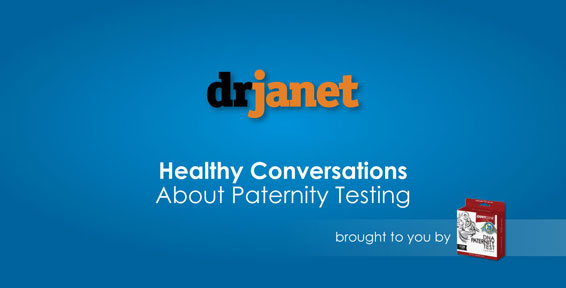Having a father figure or knowing the identity of the biological father is critical so that your child’s health and quality of life is not compromised. The easiest and most reliable way to discover a child’s biological father is to take a HomeDNA paternity test. The results, regardless of what they may be, will give you the answers you need to build a strong and happy family. Here are the top seven ways taking a DNA paternity test can make your family stronger.
1. Emotionally-expressive childrenHaving a father figure-biological, adoptive, or step-is proven to make children more emotionally expressive (Freakonomics 2011). Children with both a mother and father figure in their lives are able to better regulate their emotions, resulting in less outbursts of aggression and more friendly cooperation in social settings. Having two parental figures who exhibit emotions that positively impact their children are better able to teach their children how to appropriately react and modulate their emotional responses.
2. Improved cognitive abilitiesAccording to research by William Scott for ParentsAsTeachers.org, involved and nurturing fathers can improve their child’s cognitive abilities, resulting in better school performance and higher IQs (2011). A paternity test often encourages the biological fathers to be involved in their child’s life, and the certainty of the father-child relationship is likely to deepen their bond and make the father more loving and devoted.
3. Better health for your childOne incredibly-important reason to get a DNA paternity test is for your child’s health. Confirming the child’s biological father with a DNA test provides you with a record of his family’s health history. This could be beneficial during pregnancy (with non-invasive prenatal DNA testing) or childhood for early detection of any genetic disorders or health risks. Having records of family health history can also inform doctors on the best tests and treatment options for your child. Keeping your child healthy makes your family stronger by reducing the chances of serious illness or disease that could have been detected early on or avoided entirely.
4. Legal evidence for child supportIf the biological father of your child does not want to be involved in his child’s life, a DNA paternity test can ensure that he is legally accountable by providing child support. Child support is especially important in single-parent families to make sure the child can be supported financially until they reach an age that allows them to support themselves. Financial strain will not only affect family relationships, it can also impact a child’s quality of life.
5. Sense of identityKnowing the biological father can also positively affect a child’s sense of identity. Having a complete understanding of who their true parents are, where both they and their ancestors came from, and how they themselves came into being can help them better understand who they are and take pride in their identity. This information can help them discover their roots and expand their cultural awareness as they learn more about their family’s place in history. As a result this creates a higher self-esteem and more empathetic behavior toward others.
6. Happy life beyond childhoodMany studies have found that children with good relationships with their fathers are less likely to experience depression, not only in their younger years, but also far into adulthood (Haskett 2012). In addition these same children are less likely to exhibit delinquent behaviors or become involved with drugs and/or violence. The presence of a good father figure can positively impact your child’s development and well-being, laying the crucial groundwork for a happy and successful life.
7. Peace of mind for the entire familyMost of all, paternity testing can unite your entire family by giving everyone peace of mind. Uncertainty can create distrust and paranoia that, unless addressed head-on, can hurt your chances of having a happy, strong, and loving family. Rather than living without knowing, finding the answers you need can deepen family bonds and ensure that each child has what they need for a happy and fulfilling life.
Make your family stronger with the DNA paternity test from HomeDNA
These areas of child development are based on the presence of a positive father figure, however you choose to define it. This includes any male role model in the child’s life, such as biological fathers, stepfathers, adoptive fathers, extended family members, family friends, and even educators. However, many of the benefits listed above are dependent on simply knowing the identity of child’s biological father, whether he is involved or not.
Find a paternity test kit near you and make a stronger, happier, and healthier family today.
Follow us on Facebook and Twitter! If you have questions about paternity tests or other DNA testing services, please contact our Client Support Center at 888-404-4363, Mon-Fri from 8:30 AM to 5:30 PM Eastern Time. Our friendly, expert representatives are ready and happy to help. Get answers anytime by visiting our Help Center.
Bibliography
“Benefits and Uses of DNA Paternity Testing – Paternity & DNA Testing.” Paternity DNA Testing RSS. DNA Diagnostics Center, 10 July 2014. Web. 29 Apr. 2015.
Evans, Garret D., and Kate Forgarty. “The Hidden Benefits of Being an Involved Father.” The Hidden Benefits of Being an Involved Father. Education.com, 4 May 2011. Web. 29 Apr. 2015.
“Gather and Share Your Family Health History.” Centers for Disease Control and Prevention. Centers for Disease Control and Prevention, 17 Nov. 2014. Web. 29 Apr. 2015.
Haskett, Mary E., Rebecca Stelter, Katie Proffit, and Rachel Nice. “Parent Emotional Expressiveness and Children’s Self-regulation: Associations with Abused Children’s School Functioning.” Child Abuse & Neglect. U.S. National Library of Medicine, 6 May 2012. Web. 29 Apr. 2015.
“How an Absent Father Affects Boys and Girls Differently.” Freakonomics RSS. N.p., 19 Oct. 2011. Web. 29 Apr. 2015.
Rosenberg, Jeffrey, and William Bradford Wilcox. The Importance of Fathers in the Healthy Development of Children. Washington, D.C.: U.S. Dept. Health and Human Services, Administration for Children and Families, Administration on Children, Youth and Families, Children’s Bureau, Office of Child Abuse and Neglect, 2006. ChildWelfare.gov. U.S. Department of Health and Human Services, 2006. Web. 29 Apr. 2015.
Scott, William, and Amy De La Hunt. “RESOURCES FOR Men in the Lives of Young Children.” YC Young Children 65.3 (2010): n. pag. Parents as Teachers. 16 Nov. 2011. Web. 29 Apr. 2015.









